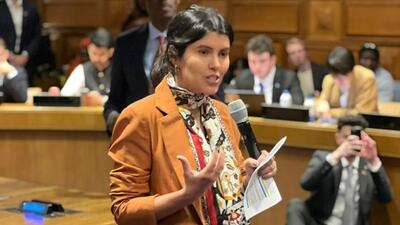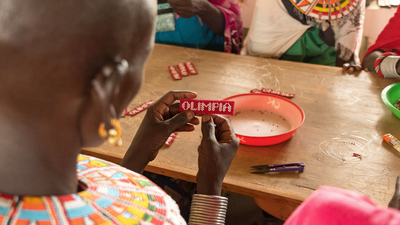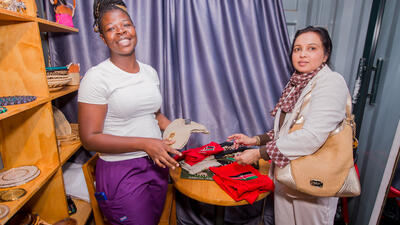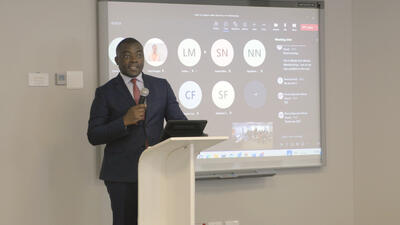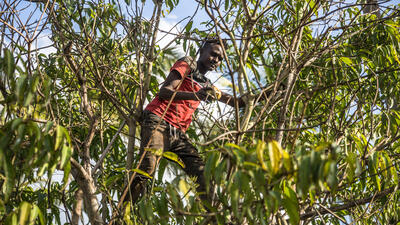ITC Ethical Fashion Programme boosted by new partnership with Kenya’s Export Promotion Council
The International Trade Centre (ITC) ethical fashion programme in Kenya, which helps small and medium-sized businesses in the fashion sector to export their products, has received a major boost with the signature of a partnership agreement between ITC and Kenya’s Export Promotion Council (EPC).
ITC Executive Director Patricia R. Francis travelled to Nairobi for the signing ceremony. She said, “ITC expects the value of exports under the programme, which works with some 5,000 artisans, to increase to US$ 5 million this year, up from about US$ 2 million in 2009.” She also announced that a design centre would be set up in Kenya to facilitate the transfer of technology and skills to local communities.
The ITC–EPC partnership has been established within the framework of the World Trade Organization’s Aid for Trade initiative and aims to involve Kenya’s disadvantaged communities and designers in the international value chain of ethical fashion. Ethical fashion has proved to be an effective vehicle for poverty reduction, empowerment of women and improvement of the environment, thus contributing to several of the United Nations’ Millennium Development Goals.
Under the programme, ITC’s Ethical Fashion team keeps fashion buyers informed of the skills and capacities available in Kenyan communities, the stories behind their work and the impact that working with them could have on their lives. This approach has enabled international fashion companies to develop product lines that incorporate skills and materials from Kenyan communities.
Benefits for exporters from the programme are expected to include:
- Creation of employment opportunities in line with Kenya’s economic development plan, Vision 2030;
- Reduction of poverty as stipulated in Vision 2030;
- Improvement of quality of life as a result of higher standards of living in disadvantaged communities;
- Reduction of crime as a result of relatively higher incomes among marginalized members of society;
- More skilled manpower, resulting in increased trade.
Ms Francis said: “Our assistance to Kenya and the wider East African region is fairly broad and we are raising the capacity of EPC so that it can serve traders better. We anticipate that there is also going to be more cross-border trade with an expanded market, and we feel that this is the most important thing for Africa at this time.”
The official signing of the partnership agreement took place at the EPC offices in Nairobi on 28 July 2010, attended by Matanda Wabuyele, EPC’s Chief Executive, and Ms Francis.




